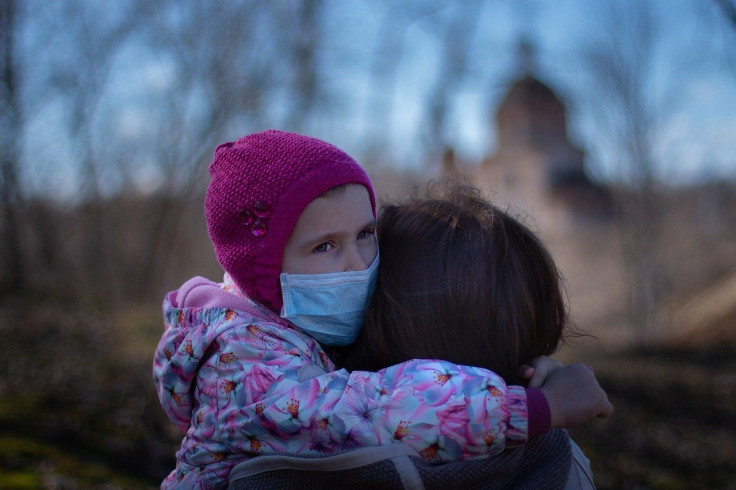New Study Shows Coronavirus Stays In Asymptomatic Kids' Throats, Noses For Weeks
KEY POINTS
- New study kids are regarded as "silent spreaders" of coronavirus
- The study shows that coronavirus can stay in children's respiratory tract for weeks
- These kids can carry the virus in their throats and noses for more than 17 days
Coronavirus can stay in the noses and throats of children for several weeks without showing any symptoms, allowing the deadly virus to spread silently.
Undetected infections in children are likely the cause of silent coronavirus transmission in the community. This is what South Korean researchers stated in their recently concluded study “Clinical Characteristics and Viral RNA Detection in Children With Coronavirus Disease 2019 in the Republic of Korea.”
On Friday, the researchers reported that the virus can stay in the throats and noses of asymptomatic kids for many weeks. "In this case series study, inapparent infections in children may have been associated with silent COVID-19 transmission in the community," the researchers stated in their study.
In an accompanying editorial, both Dr. Roberta DeBiasi and Dr. Meghan Delaney, two U.S. doctors based at the Children's National Hospital in Washington, D.C., said that the study conducted by the South Korean researchers appear to be in-sync with their information that there are around 40% infected adults who were without any symptoms.
Delaney and DeBiasi were not involved in the new research. "In this study, the authors estimate that 85 infected children (93%) would have been missed using a testing strategy focused on testing of symptomatic patients alone," the two doctors wrote.

The South Korean researchers examined data on 91 children admitted in 22 hospitals after testing positive for the coronavirus infection. The patients underwent testing every three days to monitor their viral load and symptoms during February and March, CNN reported.
Among the 91 children infected, 22% did not exhibit any symptoms, with one in four of them developing symptoms after their diagnosis. Some of those who developed COVID-19 indicators experienced the symptoms only after 25 days. Researchers also revealed that one in five of the children did not show any symptoms of the illness, although they tested positive for coronavirus.
Regardless of whether or not they had symptoms, all 91 patients carried coronavirus traces for an average of 17 days, with some of them carrying the virus for about 21 days or more after their initial diagnosis, researchers wrote in their study. Among those who experienced signs of the illness, researchers observed their symptoms can last anywhere from three days to three weeks, with 10% of them reporting feeling ill three weeks or more after their diagnosis. In the past, there is little evidence as to how long the kids experience the symptoms.
DeBiasi and Delaney said that the study's findings revealed the need for universal testing for children, adding that conducting tests only on symptomatic children will miss those asymptomatic kids, who are silently spreading the virus as they move around in their community and schools.
Recently, researchers from the Massachusetts General Hospital for Children found that asymptomatic kids may be silently spreading the infection, and may also be more infectious than adult coronavirus patients.
The South Korean researchers' findings underscore the fact that scientists still know little about the coronavirus, the two U.S. doctors noted. They said that scientists and medical professionals alike need to have more data on how the virus affects kids and how these children can pass on the infection to others.
"Until these studies are performed, we are shooting in the dark," DeBiasi and Delaney wrote.
The South Korean study came out amid growing criticisms against the U.S. Centers for Disease Control and Prevention (CDC) after the agency modified its asymptomatic testing guidelines. In a statement last Aug. 28, the American Academy of Pediatrics called the modified CDC guideline as "a dangerous step backward."
According to the updated guidelines, "If you have been in close contact (within 6 feet) of a person with a COVID-19 infection for at least 15 minutes but do not have symptoms, you do not necessarily need a test unless you are a vulnerable individual or your health care provider or State or local public health officials recommend you take one."
The new study, which South Korean researchers published in the Journal of the American Medical Association (JAMA) Network, adds to the mounting evidence about the need to cast a wider net as regards contact tracing to help reduce the spread of the virus.
© Copyright IBTimes 2024. All rights reserved.





















